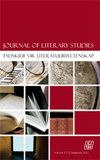享受症状:大卫·福斯特·华莱士对丑陋男人的简短采访
IF 0.1
4区 文学
0 LITERARY THEORY & CRITICISM
引用次数: 0
摘要
本文考察了大卫·福斯特·华莱士在《丑恶男人简记》中对男子气概的颠覆。男性角色大声而漫无目的的独白体现了物化女性、颂扬掠夺性行为以及将男性气概等同于快速的性满足的实例。然而,男性角色似乎总是受到女性威胁的困扰。在华莱士故事集的“简短访谈”部分,男性话语的矛盾和不一致揭示了与被压抑的女性相关的男性神经症症状,其中最明显的证据是女性治疗师/采访者的沉默形象。通过黑色和颠覆性的幽默,这些症状表明男性焦虑与无法代表女性有关。借鉴拉康和弗洛伊德的核心概念,我的目的是展示华莱士如何通过他对症状的颠覆性使用来破坏男性气概的霸权观念。我认为,华莱士对受访者享受这种症状的描述,是他对男性维持这种虚幻快乐的企图的颠覆性嘲笑的基础。本文章由计算机程序翻译,如有差异,请以英文原文为准。
Enjoying the Symptom: David Foster Wallace’s Brief Interviews with Hideous Men
This article investigates David Foster Wallace’s subversion of masculinity in Brief Interviews with Hideous Men. The loud and rambling monologues of the male characters embody instances of objectifying women, glorifying predatory sexuality, and equating masculinity with quick sexual gratification. The male characters, however, seem to be constantly plagued with the threatening presence of women. In the “Brief Interviews” sections of Wallace’s collection of stories, the paradoxes and inconsistencies of the male discourse reveal the symptoms of male neurosis connected with the repressed female, the most conspicuous evidence of which is the silenced figure of the female therapist/interviewer. Rendered through dark and subversive humour, the symptoms indicate the male anxieties related with the inability to represent women. Drawing on the central concepts of Lacan and Freud, I aim to show the ways in which Wallace undermines the hegemonic notions of masculinity through his subversive use of the symptom. I argue that Wallace’s portrayals of the interviewees’ enjoyment of the symptom underlies his subversive ridicule of the male attempts of sustaining the illusory pleasure.
求助全文
通过发布文献求助,成功后即可免费获取论文全文。
去求助
来源期刊

Journal of Literary Studies
Multiple-
CiteScore
0.50
自引率
0.00%
发文量
0
期刊介绍:
The Journal of Literary Studies publishes and globally disseminates original and cutting-edge research informed by Literary and Cultural Theory. The Journal is an independent quarterly publication owned and published by the South African Literary Society in partnership with Unisa Press and Taylor & Francis. It is housed and produced in the division Theory of Literature at the University of South Africa and is accredited and subsidised by the South African Department of Higher Education and Training. The aim of the journal is to publish articles and full-length review essays informed by Literary Theory in the General Literary Theory subject area and mostly covering Formalism, New Criticism, Semiotics, Structuralism, Marxism, Poststructuralism, Psychoanalysis, Gender studies, New Historicism, Ecocriticism, Animal Studies, Reception Theory, Comparative Literature, Narrative Theory, Drama Theory, Poetry Theory, and Biography and Autobiography.
 求助内容:
求助内容: 应助结果提醒方式:
应助结果提醒方式:


